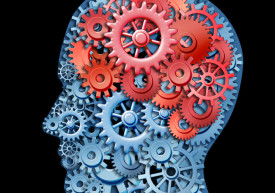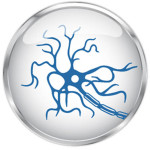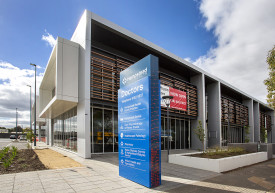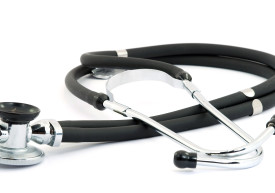In this months blog, we’re going to talk about our memory and what we can do to improve it in both adults and children. If you would like to know more about memory and ageing, Hampstead Health Family Practice will be hosting a free seminar covering this in September. It will be presented by Alzheimer’s Australia. Keep an eye out on this website or on the Hampstead Health Family Practice Facebook page for more information.
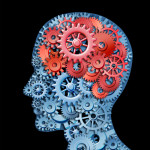
How Our Memory Works
The brain is responsible for all aspects of our body’s functioning. When we take steps to improve our brain health, we are not just going to improve our memory, but we may also have an indirect positive effect of all of the brains other functions.
We can quite often take our brain for granted as we live with it’s automatic functions everyday without giving them a second thought, for example walking and talking. What we also tend to forget is how complex our brain and neural function really is. Because of it’s complexity, and great importance, it is vital we keep our brain as healthy and as fit as possible.
The key structures of the brain consist of:
Cerebellum: this regulates posture and balance
Hypothalamus: the major link between the nervous and hormonal systems. This regulates body temperature, thirst, hunger, sexual behaviour, and the “fight or flight” response.
Pituitary: this is the main endocrine gland. Through its hormones, the pituitary affects every physiological process of the body.
Corpus callosum: this is a braid band of nervous tissue which connects the two hemispheres of the brain.
Medulla oblongata: responsible for the control of essential functions such as breathing and circulation.
Spinal chord: As part of the central nervous system, the spinal cord carries impulses back and forth between the brain and other parts of the body through a network of nerves that extend out from it like branches.
Neurons are the type of cell in the nervous system that process and transmit information. These neurons make up the multitude of nerves in our brain spinal cord and peripheral nerves. Each single neuron has up to a further 10 000 connections to other neurons. Our brain and central nervous system certainly is intricate and complex.
When should we start looking after our brain?
The earlier the better is the answer. Women planning a pregnancy and throughout their pregnancy should have a healthy diet, and take certain nutrients such as fish oil high in DHA, folic acid and iodine to help give the developing baby the best chance in life both mentally and physically. Neurons multiply at a rate of 250 000 per minute in early pregnancy. We are born with around 100 billion neurons and the development of the brain continues long after birth. Some studies conducted on pregnant women taking DHA showed significant effects on the performance of problem solving tasks in babies 9 month old.
Children can also benefit from brain health practises. By adopting a healthy, varied diet including fish, avoiding artificial colours flavours and excess sugar, daily outdoor exercise, and sometimes additional fish oil supplements, a child’s concentration, behaviour and memory can be greatly improved.
If you are reading this, then it’s safe to say you are not a child! It is not too late to start helping your brain health and possibly prevent debilitating diseases like Alzheimer’s.
Brain Health for Adults and the Elderly.
The hippocampus (responsible for memory) is an area of the brain most susceptible to aging. And in middle age it ages quickly. Lifestyle factors also play a part in the health of our brain. Students, people in the work force and the elderly will all have different mental stressors and different mental requirements. Something that all people can do is to incorporate exercise, stress management, and have a healthy daily diet.
Your diet should consist of fresh fruits and vegetables, high quality protein (such as lean meats, fish), reduced alcohol intake, no cigarette smoking, and lots of water to keep your cells well hydrated. When preparing food, cook them in a healthy way to retain the most nutrients possible, such at seaming and grilling, rather than frying.
A key to keeping the brain young, is to exercise it. You can do this buy taking a general interest short course, reading novels, and doing mental puzzles like crosswords and sudoko. Buy getting out of your normal thinking patterns, and challenging your brain with new thoughts and ideas, you will do wonders.
Specific supplements may help with memory and brain health, but please speak to your doctor before taking these as they can sometimes interact with medications.
Diet for Brain Health
Diet is important for improving every area of your body and health. Eating for brain health is no different.
It goes without saying that a child’s memory, concentration and behaviour is greatly improved when they avoid artificial colours and flavours, keep sugar intake to a minimum, and consume plenty of fresh fruit and vegetables, and unprocessed grains. Fish should also be on the menu, along with good quality protein such as lean, hormone free meat and chicken. In the real world this is hard. Start by getting used to reading the labels on packaged food and you will soon know what to look for and avoid. Keep an eye out for alternatives (e.g natural food colours). And take small steps at a time. By making one huge change, you are more likely to encounter problems with compliance and sticking to the new diet.
Adults and the elderly also need to watch their diet. All of the above still applies to you, along with the addition of cutting down your alcohol consumption, quitting cigarettes, and avoiding recreational drug use.

Exercise
As mentioned, exercise will help everyone’s brain health of all ages. Exercise will help move toxins out of our body, increase circulation which will help with blood flow to brain bringing much needed nutrients and oxygen, and it will also help relieve stress. By taking on an activity, you will also start to use other areas of your brain, and so will be exercising you brain as well. Have a chat with your doctor before starting an exercise program.
The saying “use it or lose it” is very appropriate for the brain. So take action now to improve your brain health for now and into old age.
We hope you have found this article interesting and if you ever have any concerns about your or a loved one’s memory, please speak to your doctor.
Don’t forget, Hampstead Health Family Practice will be hosting a FREE health seminar on memory, being presented by Alzheimer’s Australia SA this coming September. Keep up to date by following them on Facebook by clicking here.

